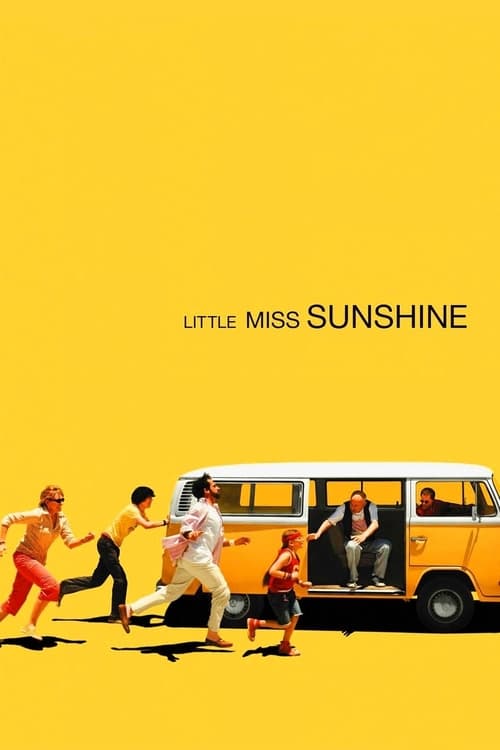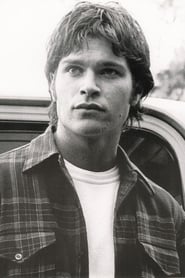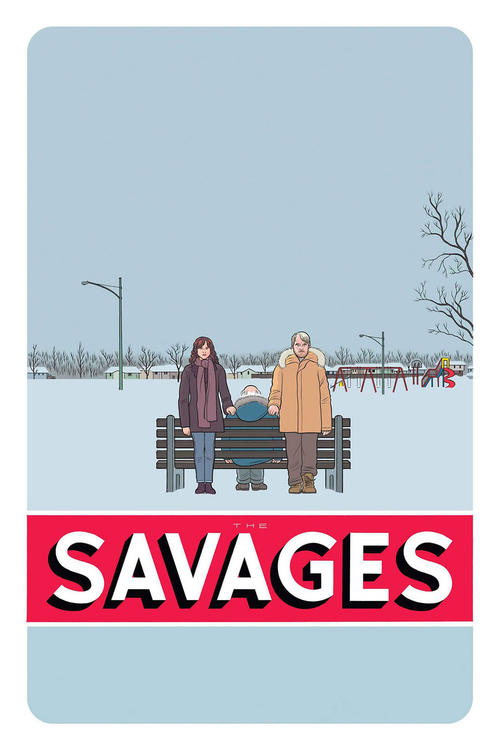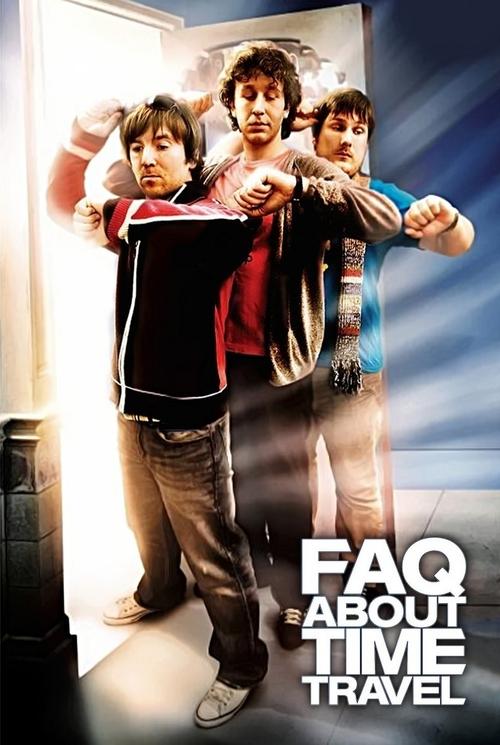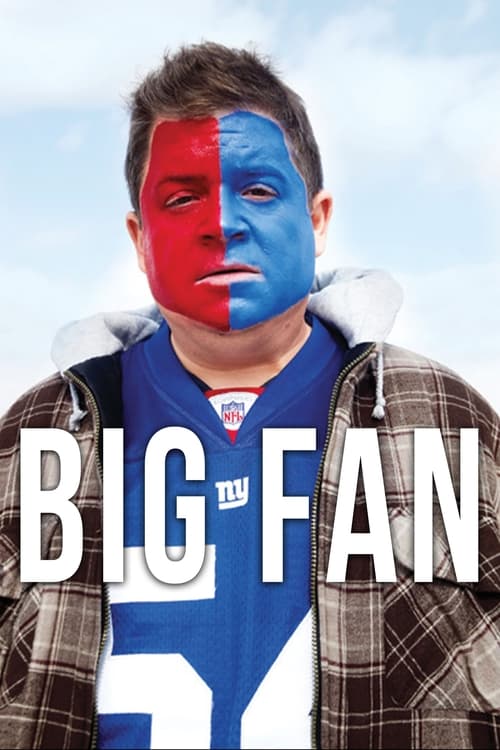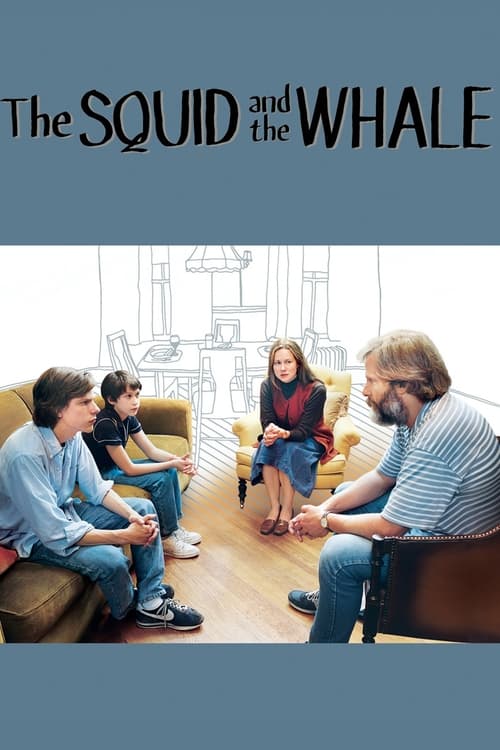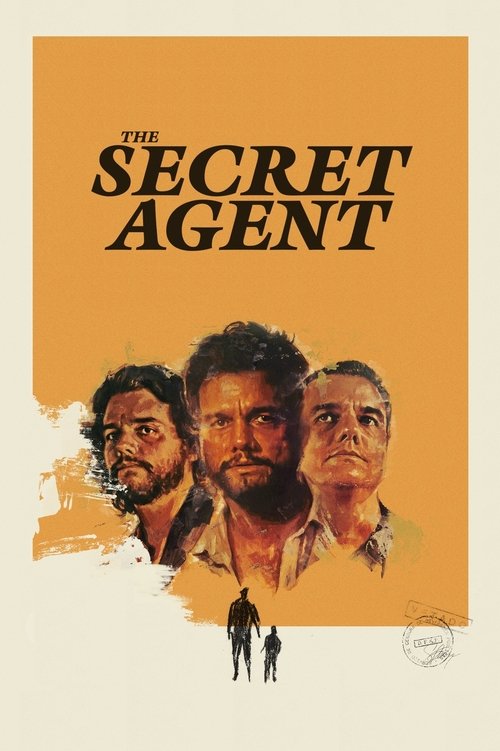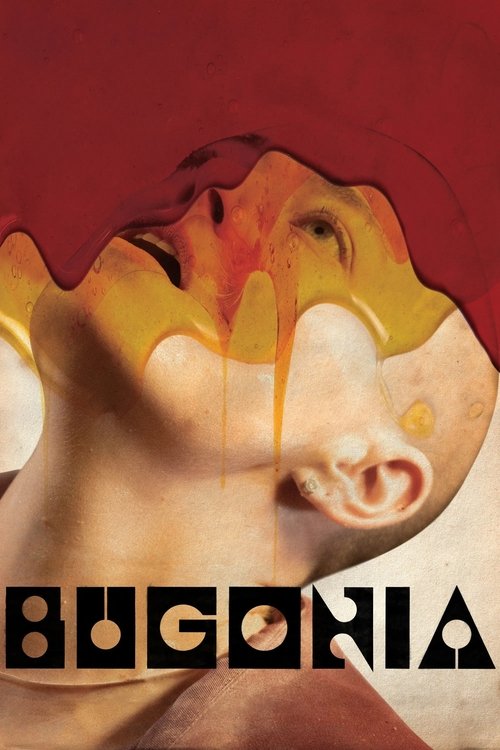
Ask Your Own Question
What is the plot?
In Albuquerque, New Mexico, the Hoover family is a portrait of dysfunction wrapped in love and chaos. The film opens with Sheryl Hoover nervously smoking a cigarette as she drives to the hospital to pick up her brother, Frank Ginsberg. Frank, a somber and emotionally withdrawn Proust scholar, sits in a wheelchair after a recent suicide attempt triggered by a devastating romantic rejection and professional rivalry. Sheryl's concern for Frank is palpable, but his numbness casts a shadow over the family's fragile equilibrium.
At home, Richard Hoover, Sheryl's husband, is seen delivering a motivational speech to an almost empty room, preaching his "Refuse to Lose" nine-step program. He asserts, "There are two types of people in this world: winners and losers," a mantra that underscores his relentless pursuit of success despite mounting failures. Richard's obsession with winning contrasts sharply with the family's reality and sets up a recurring tension throughout their journey.
Their teenage son, Dwayne Hoover, is a brooding figure who has taken a vow of silence, communicating only through a notepad. He is fixated on Nietzsche and dreams of becoming a fighter pilot, embodying a stoic, isolated presence within the household. Edwin Hoover, Richard's father and Olive's grandfather, is a foul-mouthed, irreverent man recently evicted from a retirement home for snorting heroin. Despite his addiction, Edwin is Olive's devoted pageant coach, encouraging her with a mix of blunt honesty and affection.
Olive Hoover, the youngest family member, is a bright-eyed seven-year-old with thick glasses and an earnest passion for beauty pageants. She practices her dance routine tirelessly, guided by Edwin's unconventional coaching. Olive is not the typical pageant contestant, but her enthusiasm and innocence make her the emotional heart of the family.
The inciting incident arrives via an answering machine message: Olive has qualified for the "Little Miss Sunshine" beauty pageant in Redondo Beach, California, after the original winner was disqualified for using diet pills. The news electrifies Olive and sets the family on an urgent path. Despite financial strain and personal turmoil, the Hoovers decide to travel together in their aging yellow Volkswagen van to support Olive's dream.
Their road trip begins with immediate challenges. The van, a battered relic, breaks down early, forcing the family to push it until it reaches about 20 miles per hour before jumping inside to start it. This physical exertion becomes a recurring motif, symbolizing the family's collective effort to keep moving forward despite obstacles. Along the way, the van's horn inexplicably honks nonstop, resulting in a tense encounter with a state trooper, underscoring the chaotic nature of their journey.
As they travel, tensions simmer and erupt. Richard's fixation on success clashes with Sheryl's pragmatic attempts to hold the family together. Frank and Dwayne find a tentative bond in their shared feelings of alienation, while Edwin's heroin use looms as a dark undercurrent. The cramped quarters and relentless road trip exacerbate their dysfunction, revealing deep-seated frustrations and vulnerabilities.
A pivotal moment occurs at a roadside motel, where Dwayne undergoes an eye exam. The devastating revelation that he is colorblind shatters his dream of becoming a fighter pilot. Overcome with anguish, Dwayne breaks his vow of silence and screams in frustration, "I hate everyone!" This emotional outburst exposes his inner turmoil and the fragility beneath his stoic exterior. The family struggles to comfort him, highlighting their collective pain and imperfect support.
The most tragic turn comes quietly and off-screen. Edwin Hoover dies of a heroin overdose in the motel room during the night. The family discovers him unresponsive in the morning, a stark confrontation with the consequences of his addiction. Rather than alert authorities, they decide to conceal his death to avoid derailing Olive's pageant dream. In a darkly comic and macabre sequence, they transport Edwin's body in the trunk of the van, managing the grim logistics with a mix of horror and reluctant humor.
As they near Redondo Beach, Richard's professional hopes collapse when it becomes clear his "Refuse to Lose" program has not been sold, dashing the family's financial relief. This revelation deepens the strain but also strips away Richard's pretenses, setting the stage for his eventual transformation.
At the pageant, the Hoovers confront the superficial and rigid world of child beauty contests. Olive's dance routine, choreographed by Edwin, is unconventional and provocative, set to Rick James' "Super Freak." When Olive takes the stage, her performance shocks the audience and pageant officials alike. The routine includes moves and expressions that starkly contrast with the pageant's polished, sanitized expectations.
The pageant staff attempt to stop Olive mid-performance, but in a powerful act of familial solidarity, the entire Hoover family rushes onstage to join her. Together, they dance defiantly, rejecting societal norms and embracing Olive's authentic self-expression. The crowd is stunned, and the family is promptly ejected from the venue. Despite the chaos, Olive remains proud and unscathed, her joy a triumphant counterpoint to the pageant's judgment.
In the aftermath, Richard abandons his rigid "winners and losers" philosophy. He tells Olive, "I'm proud of you no matter what," acknowledging that happiness and authenticity outweigh conventional success. This moment marks a profound shift in his character and the family's dynamic.
The film closes with the Hoovers loading into their van once more. The vehicle, emblematic of their journey and struggles, requires another push start. They run alongside it, laughing and jumping in as it roars to life. Driving off into the night, the family's unity and resilience shine through their imperfections, embracing the messy, unpredictable nature of life together.
Throughout the story, no characters other than Edwin Hoover die, and his death is caused by a heroin overdose related to his addiction. The other family members survive, their relationships tested but ultimately strengthened. The film's revelations--Frank's suicide attempt and emotional pain, Dwayne's shattered dreams, Richard's professional failure, and Olive's unexpected pageant qualification--interweave to create a narrative about acceptance, perseverance, and the true meaning of winning.
This journey from Albuquerque to Redondo Beach, spanning roughly 800 miles, unfolds over a few intense days, capturing the raw, sometimes painful, but ultimately loving interactions of a family learning to embrace each other's flaws. The final confrontation at the pageant and the family's united dance serve as a cathartic climax, affirming their bond in the face of societal expectations and personal adversity. The film ends not with a neat victory but with a hopeful, joyous continuation of their shared journey.
More Movies Like This
Browse All Movies →What is the ending?
At the end of "Little Miss Sunshine," the Hoover family arrives at the beauty pageant in California, where Olive performs her dance routine. Despite the unconventional nature of her performance, the family supports her wholeheartedly. After the pageant, they leave together, united in their love for one another, having grown closer through their journey.
As the final act of "Little Miss Sunshine" unfolds, the Hoover family arrives at the Little Miss Sunshine beauty pageant venue in California. The atmosphere is vibrant and filled with excitement, contrasting sharply with the family's earlier struggles. Olive, dressed in her bright yellow pageant outfit, is both nervous and eager to perform. Her family, despite their own personal issues, rallies around her, showcasing a newfound sense of unity.
The scene shifts to the pageant stage, where the contestants are introduced. Olive watches the other girls, who are polished and rehearsed, and she feels a mix of anxiety and determination. When it's her turn to perform, she steps onto the stage, her heart racing. The music starts, and she begins her unconventional dance routine, which is a mix of quirky moves and uninhibited expression. The audience is initially taken aback, and the judges exchange confused glances. However, Olive dances with pure joy, embodying the spirit of being herself, unfiltered and authentic.
As she dances, her family watches from the audience, their expressions shifting from concern to pride. They cheer her on, fully embracing her uniqueness. The camera captures the emotional reactions of her family members: Richard, her father, who has been struggling with his own failures; Sheryl, her mother, who has been trying to hold the family together; Dwayne, her brother, who has been silent throughout the journey; Frank, her uncle, who has been battling his own demons; and Grandpa, who has been a source of support. Each family member is visibly moved by Olive's performance, realizing the importance of supporting one another.
After Olive finishes her routine, the audience erupts into applause, albeit mixed with confusion. The judges, however, are not impressed, and Olive does not win the title of Little Miss Sunshine. Yet, the moment is transformative for the family. They come together on stage, breaking the pageant's rules by joining Olive in her dance, celebrating her spirit and individuality. This act of defiance against the pageant's norms symbolizes their collective acceptance of each other's flaws and the importance of family over competition.
As the pageant concludes, the family leaves the venue together, a stark contrast to the disjointed group they were at the beginning of their journey. They pile into their Volkswagen bus, laughing and joking, a sense of relief and joy washing over them. The camera captures their faces, illuminated by the glow of the setting sun, signifying hope and a new beginning.
In the final moments, the family drives off, united and stronger than before. Each character has experienced growth: Richard learns to let go of his obsession with success; Sheryl embraces her role as a supportive mother; Dwayne finds his voice; Frank begins to heal; and Olive, regardless of the outcome, discovers the importance of being true to herself. The film closes with the family driving into the horizon, symbolizing their journey together, filled with love and acceptance.
Is there a post-credit scene?
In the movie "Little Miss Sunshine," there is no post-credit scene. The film concludes with the family participating in Olive's beauty pageant, culminating in a heartfelt and chaotic performance. After the pageant, the story wraps up with the family leaving the venue together, symbolizing their unity despite the challenges they faced throughout their journey. The film ends on a note of acceptance and love, emphasizing the importance of family over societal expectations.
What motivates Olive to enter the Little Miss Sunshine pageant?
Olive Hoover, a young girl with dreams of becoming a beauty queen, is motivated to enter the Little Miss Sunshine pageant after her father, Richard, shares his belief in the importance of winning and achieving success. Despite her family's dysfunction, Olive's innocence and desire for validation drive her to pursue the pageant, seeing it as an opportunity to shine and gain approval from her family.
How does the family react to Dwayne's vow of silence?
Dwayne, Olive's older brother, takes a vow of silence as part of his commitment to becoming a pilot. His family initially struggles to understand his choice, leading to tension and frustration. As the road trip progresses, his silence becomes a source of both humor and conflict, highlighting his internal struggles with his aspirations and the family's chaotic dynamics.
What is the significance of Grandpa's role in the family?
Grandpa Edwin, who is living with the Hoovers, plays a crucial role in both Olive's life and the family's journey. His rebellious spirit and candidness provide comic relief, but he also serves as a mentor to Olive, encouraging her to embrace her uniqueness. His eventual death during the trip adds emotional weight, forcing the family to confront their issues and come together in a moment of shared grief.
How does Richard's obsession with success affect the family dynamics?
Richard Hoover's obsession with success and his '9-step program' create a rift within the family. His relentless pursuit of winning leads to tension, particularly with his wife, Sheryl, and his son, Dwayne, who feel stifled by his expectations. This obsession ultimately highlights the family's struggles with self-worth and acceptance, culminating in moments of conflict that reveal deeper emotional wounds.
What challenges does the family face on their road trip to the pageant?
The Hoover family faces numerous challenges on their road trip to the Little Miss Sunshine pageant, including car troubles, financial strain, and personal conflicts. The VW bus breaks down multiple times, symbolizing their dysfunctional journey. Additionally, they encounter emotional breakdowns, such as Dwayne's realization of his unfulfilled dreams and Sheryl's stress over family dynamics, all of which test their resilience and ultimately bring them closer together.
Is this family friendly?
"Little Miss Sunshine," while a heartfelt and comedic film, does contain several elements that may be considered objectionable or upsetting for children or sensitive viewers. Here are some aspects to be aware of:
-
Strong Language: The film features frequent use of profanity, which may not be suitable for younger audiences.
-
Depictions of Depression and Suicide: One of the characters struggles with depression and there are references to suicide, which could be distressing for some viewers.
-
Family Conflict: The film portrays significant family tension and arguments, showcasing dysfunctional dynamics that might be uncomfortable for sensitive viewers.
-
Adult Themes: There are discussions and situations involving adult themes, including sexuality and the pressures of competition, which may not be appropriate for children.
-
Emotional Struggles: Characters experience deep emotional pain and personal crises, which could be upsetting for younger viewers or those who are sensitive to such themes.
-
Visuals of Distress: Some scenes depict characters in distressing situations, such as a medical emergency, which may be alarming.
Overall, while the film carries a message of love and acceptance, its content may require parental guidance for younger audiences.

